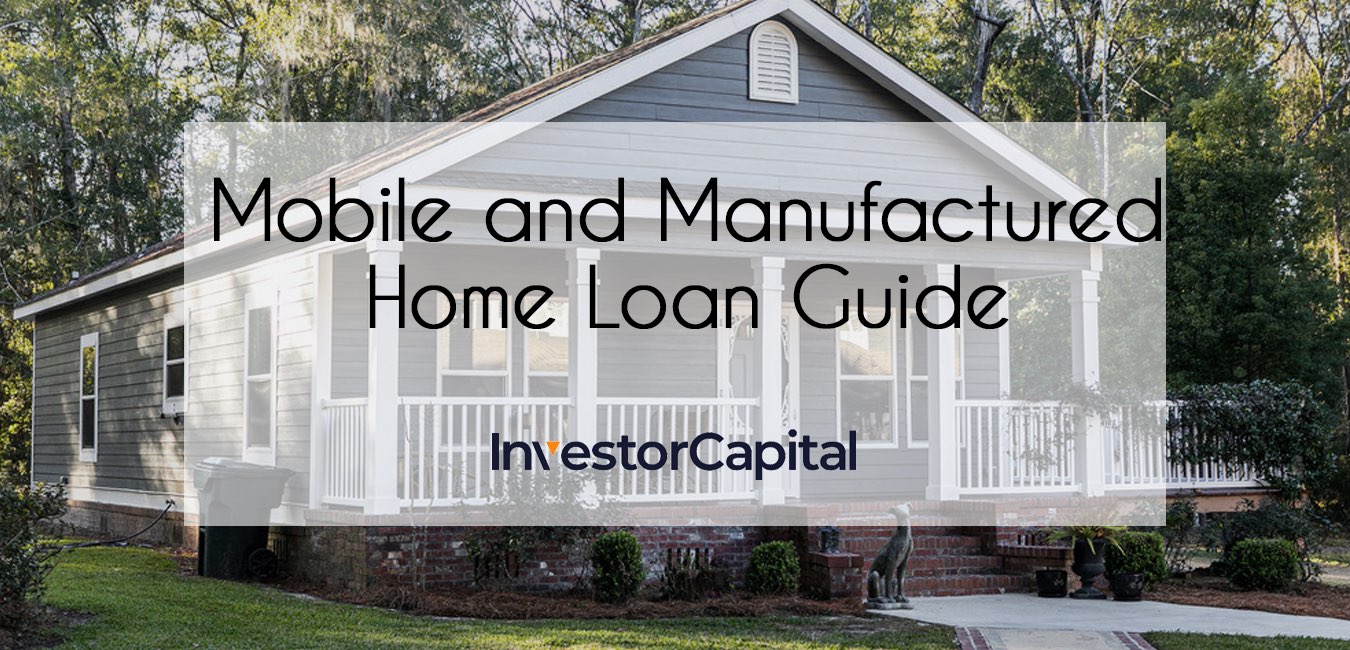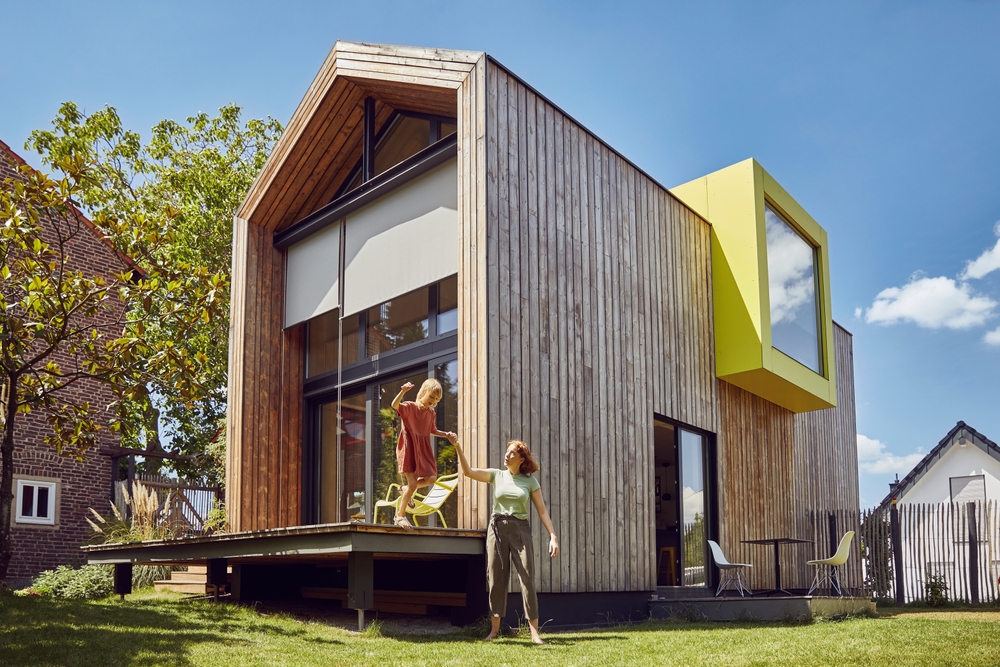In recent years, mobile and manufactured homes have become increasingly popular as affordable housing options. They offer flexibility and a sense of community without the hefty price tag of traditional homes. However, financing these homes can be a complex process. This blog post aims to guide you through the ins and outs of mobile and manufactured home loans, offering valuable insights for prospective buyers.
Understanding Mobile and Manufactured Homes
Before diving into the financial aspects, it’s crucial to understand the difference between mobile and manufactured homes. Mobile homes refer to dwellings built before June 15, 1976, which are often smaller and constructed with materials that don’t necessarily meet today’s standards. Manufactured homes, on the other hand, are constructed following the HUD code, ensuring safety, durability, and energy efficiency.
These homes are typically built in a factory and then transported to a designated site. They can vary in size, amenities, and design, ranging from basic units to luxurious models with modern features. Recognizing these differences is essential when seeking a loan, as lenders may have varying requirements based on the type of home.
In addition, understanding these distinctions can help you communicate effectively with lenders and real estate agents. Whether you’re looking at a traditional mobile home or a newer manufactured model, knowing what you want will streamline the loan process.
Why Finance Options Matter
Getting the right loan is super important when you’re looking to buy a mobile or manufactured home. Unlike traditional houses, these types of properties often don’t qualify for regular mortgages since they’re seen as personal property instead of real estate. This can mean higher interest rates and different loan terms.
The financing options you choose can really impact your ability to find a home that fits your budget. With the right loan, you can enjoy manageable monthly payments and possibly lower interest rates. On the flip side, picking the wrong loan can lead to financial stress and expensive repayments.
At the end of the day, understanding your financing options helps you make smart choices. It’s all about finding a financial path that works for your budget and long-term goals, making your home-buying journey a lot smoother!
Exploring Loan Types
There are several loan options for mobile and manufactured homes that you might find interesting. You’ve got FHA loans, VA loans, and personal or chattel loans, each with its own perks and requirements. It’s really important to figure out which one fits your needs best!
FHA loans, backed by the Federal Housing Administration, are super popular because they offer low down payment options and competitive interest rates. They’re great for first-time buyers or anyone with less-than-perfect credit. Just keep in mind that FHA loans need the home to be on a permanent foundation, and you have to own the land it sits on.
If you’re a veteran or active-duty service member, VA loans are an awesome choice. They’re guaranteed by the Department of Veterans Affairs and often don’t require a down payment, plus they usually come with lower interest rates, making them really appealing for those who qualify.
Then there are personal or chattel loans, which are perfect for buyers who don’t own the land where the home will go. These loans tend to have higher interest rates and shorter repayment terms, but they give you the flexibility to buy a home quickly. So, check out your options and see what works best for you!
Factors Affecting Loan Approval
When applying for a loan, several factors come into play. Lenders will consider your credit score, income, debt-to-income ratio, and the condition of the home. Each of these elements influences the approval process and the terms you may receive.
Credit scores are a crucial factor; they give lenders an idea of your financial responsibility. A higher score generally results in better loan terms, while a lower score could lead to higher interest rates or even denial. It’s advisable to check your credit report and address any discrepancies before applying.
Income and debt-to-income ratios are also critical. Lenders want to ensure you have a stable income and manageable debt levels. Providing accurate documentation of your income and monthly expenses can improve your chances of approval.
Lastly, the condition and location of the home play a significant role. A well-maintained home in a desirable area may be more likely to secure a favorable loan, as opposed to older, less secure structures.
Tips for Improving Loan Approval Odds
Improving your chances of securing a loan involves preparation and foresight. Start by boosting your credit score; pay off outstanding debts and ensure all bills are paid on time. These steps demonstrate financial responsibility and can positively impact your application.
Another tip is to save for a larger down payment. A substantial down payment reduces the amount you need to borrow, potentially lowering your interest rate and monthly payments. It also shows lenders that you are serious about purchasing and maintaining your new home.
Additionally, consider getting pre-approved for a loan before starting your home search. Pre-approval gives you a clear understanding of how much you can afford, making you a more attractive buyer to sellers and lenders alike. This proactive step can streamline the buying process and enhance your confidence as you negotiate.
The Role of Interest Rates
Interest rates are a significant component of any loan. They determine how much you’ll pay over the life of the loan, affecting your monthly payments and overall affordability. Understanding how these rates work can help you choose the best loan option.
Interest rates are influenced by various factors, including the lender’s policies, current market conditions, and your financial profile. Fixed-rate loans offer predictable payments, while adjustable-rate loans may start with lower rates that can increase over time.
It’s crucial to compare offers from multiple lenders to find the most competitive rates. Even a small difference in interest rates can result in significant savings over the course of your loan. Additionally, ask lenders about any fees or additional costs associated with the loan.
By staying informed about interest rates, you can make decisions that align with your financial goals. Take the time to research and negotiate to secure the best possible terms for your home loan.
Evaluating Lender Options
Choosing the right lender is just as important as selecting the right loan. Different lenders offer varying terms, rates, and customer service, all of which can impact your home-buying experience. Take the time to research and compare lenders before making a decision.
Start by seeking recommendations from friends, family, or online reviews. Look for lenders with a reputation for excellent service and transparency. A lender who prioritizes communication and support can make a complex process feel manageable.
Once you’ve narrowed down your options, meet with potential lenders to discuss your needs and expectations. Ask about their loan products, interest rates, and fees to ensure they align with your financial plans. Don’t hesitate to ask questions; a good lender will be happy to provide clarity and guidance.
Ultimately, the right lender will understand your unique situation and offer solutions tailored to your needs. Establishing trust and open communication with your lender can foster a positive working relationship throughout the home-buying process.
Advantages of Mobile and Manufactured Homes
Mobile and manufactured homes offer several advantages over traditional housing. Their affordability, energy efficiency, and flexibility make them an attractive option for many buyers. Understanding these benefits can help you make an informed decision about your housing needs.
Affordability is a primary draw for many buyers. These homes typically cost less per square foot than site-built homes, making them an accessible option for those on a budget. Lower costs don’t necessarily mean lower quality; many modern manufactured homes boast stylish designs and high-quality materials.
Energy efficiency is another significant benefit. Newer models often come with energy-efficient appliances and construction, helping reduce utility bills and environmental impact. This feature can lead to long-term savings and a reduced carbon footprint.
Finally, the flexibility of mobile and manufactured homes is unmatched. Whether you’re seeking a permanent residence or a seasonal getaway, these homes can adapt to your lifestyle. Their versatility allows for easy relocation or modification as your needs change.
Common Challenges to Consider
While there are many benefits to mobile and manufactured homes, there are also some challenges to keep in mind. Issues such as depreciation, zoning restrictions, and limited financing options can affect your experience as a homeowner. Being aware of these challenges can help you prepare and make informed decisions.
Depreciation is a concern for some buyers. Unlike traditional homes, which often appreciate over time, mobile and manufactured homes may lose value. However, maintaining and updating the home can mitigate this risk and preserve its value.
Zoning restrictions can also pose challenges. Some areas have regulations that limit where mobile and manufactured homes can be placed. It’s essential to research local zoning laws and ensure your chosen site complies with all requirements.
Limited financing options may also be a hurdle. While there are loans available, they can come with higher interest rates and stricter terms. Understanding these limitations and preparing for them can help you secure the best financing solution.
How to Choose the Right Home
Selecting the perfect mobile or manufactured home requires careful consideration. Factors such as size, amenities, and location should play a role in your decision-making process. By evaluating these elements, you can find a home that suits your lifestyle and budget.
Begin by determining your size requirements. Consider how many bedrooms and bathrooms you need and whether you want additional living space or storage. Keep in mind that larger homes may come with higher costs and maintenance requirements.
Next, assess the amenities you desire. Modern manufactured homes offer a range of features, from gourmet kitchens to spa-like bathrooms. Prioritize the amenities that matter most to you and compare homes that align with your preferences.
Finally, choose a location that fits your lifestyle. Whether you prefer the tranquility of rural settings or the convenience of urban areas, finding a location that meets your needs is crucial. Consider factors like proximity to work, schools, and recreational activities when making your decision.
Steps to Purchase a Mobile or Manufactured Home
Purchasing a mobile or manufactured home involves several steps. From budgeting and financing to selecting and closing on a property, understanding the process can make it less daunting. Follow these steps to guide you through a successful home purchase.
First, establish a budget. Determine how much you can afford based on your income, savings, and financing options. Factor in additional costs such as insurance, taxes, and maintenance to create a comprehensive financial plan.
Next, secure financing. Research loan options and apply for pre-approval to understand your borrowing capacity. Once pre-approved, you can confidently shop for homes within your price range.
Finally, work with a real estate agent to find and close on your ideal home. An experienced agent can help you navigate negotiations, inspections, and contracts, ensuring a smooth transaction. With their assistance, you can confidently make an informed decision and secure your new home.
Conclusion
In conclusion, navigating the world of mobile and manufactured home loans can be complex, but it’s ultimately rewarding. By understanding the differences between these homes, exploring financing options, and evaluating your needs, you can make informed decisions that align with your lifestyle and budget.
With the right preparation and strategy, you can secure a loan that suits your financial goals and enjoy the many benefits of mobile and manufactured homeownership. Your dream home is within reach, providing an affordable, flexible solution for modern living.
If you’re ready to explore further, consider consulting with a financial advisor or real estate expert. They can provide personalized guidance and resources tailored to your unique situation, ensuring a seamless transition into your new home.




